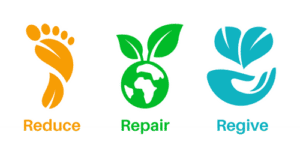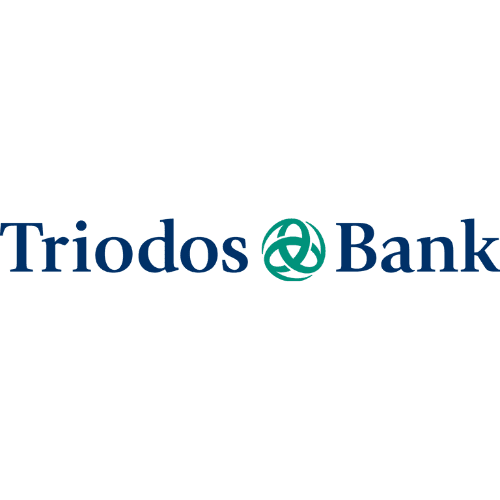
Sustainable Banking: Introduction
This week we take a look at the subject of sustainable banking. Why? The banking industry has traditionally been associated with a lack of environmental awareness. In the past, major high street banks have been linked to controversial activities such as arms trading and tar sands mining. Despite the negative reputation, most of us are compelled to engage with banks in some way, as we need a place to keep our money. In this article, we will explore the impact of banking on the environment, highlight banks to avoid, and showcase the banks that are leading the way in sustainability.
Play It Green is here to help you and your business make informed decisions on your journey to a sustainable future. With that in mind, our business tips are just for you! Read on to learn more about how your banking decisions can impact your business footprint.

Sustainable Banking: Why Banking Impacts the Environment
According to the Banking on Climate Chaos 2021 report, Barclays and HSBC are among the worst fossil fuel financiers in Europe. Since the Paris Climate Change Agreement in 2016, global banks have provided a staggering $3.8 trillion to fossil fuel companies. This runaway funding for fossil fuel extraction and infrastructure exacerbates climate change and poses a threat to the lives and livelihoods of millions of people.
Apart from the direct environmental impact of certain banking practices, such as financing fossil fuel projects, the banking industry as a whole contributes to environmental degradation through its reliance on resource-intensive operations. Large banks often have extensive physical infrastructure, including branches, data centres, and ATM networks, which consume significant amounts of energy and resources. Additionally, the production and disposal of banking materials, such as paper statements, plastic cards, and promotional materials, contribute to waste generation and pollution.
The reliance on traditional banking models, involving physical branches and paper-based transactions, can further contribute to deforestation and carbon emissions through transportation and logistics. These factors highlight the broader environmental footprint of the banking industry that extends beyond specific financing decisions.
Sustainable Banking: The poor performers
It’s important to be aware of the banks that score poorly in terms of ethics and environmental action. According to Ethical Consumer, the following banks should be approached with caution:
- Barclays
- HSBC (including First Direct and M&S Money)
- NatWest Group (including NatWest, RBS, and Coutts)
- Lloyds Banking Group (including Lloyds, Halifax, and the Bank of Scotland)
- Santander (including Carter Allen)
- Tesco
- Citigroup
If you currently have an account or a pension with any of these banks, it may be worth considering a switch to a more sustainable alternative. While changing accounts can be inconvenient, the impact of where your money is held cannot be underestimated. Shifting to an ethical bank is one of the most sustainable actions you can take.
Sustainable Banks: Those Doing Well
Now, let’s focus on the banks that are leading the way in sustainability. Here are four notable examples:
The Co-operative Bank
Recently awarded the Most Ethical Bank UK 2022 by CFI, The Co-operative Bank is a purpose-driven financial institution that prioritises customers and principles. With 150 years of ethical banking experience, the bank is deeply committed to the planet, its people, and the communities it serves. The Co-operative Bank has been “beyond carbon neutral” for over 15 years, offsetting 10% more carbon emissions annually. They recycle 70% of operational waste, reduce energy consumption by 18% each year, and rely on renewable sources for power. Importantly, they ensure that clients’ money is never used to finance fossil fuels, oppressive regimes, or unethical labour practices.

Triodos
As a Certified B Corp, Triodos has gained recognition as one of the most ethical and eco-friendly banks in the UK. They received the CFI Most Ethical Bank Award in 2021 for their contributions to sustainability, including organic food and farming, nature-based investing, and social housing. Triodos has been a pioneer in funding the clean energy transition and maintains full transparency by publishing details of each investment on its website. They have already loaned £8.2 billion to projects across Europe that benefit people and the planet.

Monzo
As an all-digital bank established in 2016, Monzo has disrupted the industry with its sustainable approach. While they do have offices worldwide, their customer-facing operations are entirely online. This significantly reduces their carbon footprint compared to traditional banks. Monzo is committed to achieving net-zero emissions by 2030, actively measures and reports its carbon footprint, and has strict governance for environmental initiatives. They also refrain from investing in fossil fuel-based energy, arms, or tobacco companies.

Starling Bank
Founded in 2014 by Anne Boden, Starling Bank is a branchless online bank with a low carbon footprint. They operate on renewable energy and have an ethics statement that prohibits serving organisations from promoting harmful behaviours. Starling Bank also avoids lending to companies involved in fossil fuel extraction. They are making progress towards sustainability, including using 75% recycled PVC plastic for debit cards and aiming to become a net-zero company.

Sustainable Banks: Conclusion
While there are still many banks with poor sustainability practices, the overall landscape is gradually improving. The good news is that several sustainable banks are available in the UK, offering individuals and businesses the opportunity to make a positive impact through their banking choices. Additionally, even some of the high street banks are making efforts to enhance their sustainability practices. The industry is moving in the right direction.
If you are considering making a sustainable change in your banking, switching banks has never been easier. The Current Account Switch Service (CASS) covers 99% of UK current accounts and facilitates transferring direct debits, updating standing orders, and changing mortgages. By choosing a sustainable bank, you can align your financial decisions with your environmental values. You can also take a step towards a greener future by signing up with Play it Green and joining the movement for sustainable business.
Play It Green is the best green subscription in the UK and cannot be beaten on price.
Help ensure your:
- Workforce is educated and rewarded on a weekly basis
- Green team has all the tools to move effectively to net-zero
- Business has lots of engaging marketing content
- Team is motivated, and positive and has a great narrative on sustainability
- Business makes an ongoing environmental and social impact
- Profits feel great and more likely to grow
Sign up today through the website for £5 per person per month.




